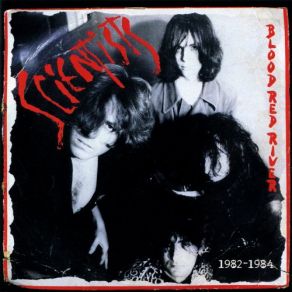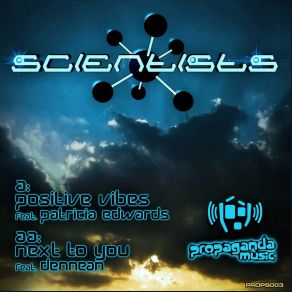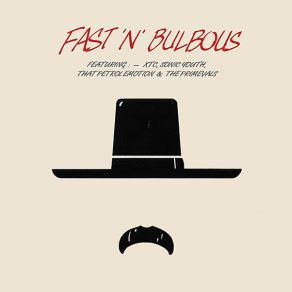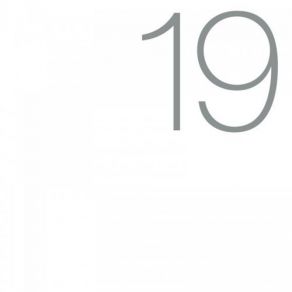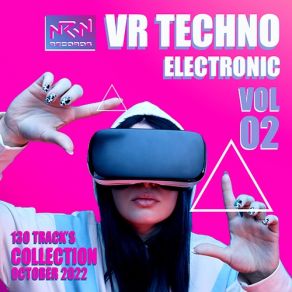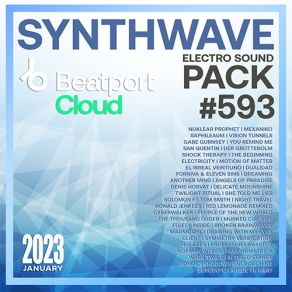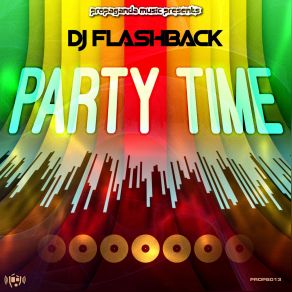Scientists
Wikimp3 information about the music of Scientists. On our website we have 25 albums and 8 collections of artist Scientists. You can find useful information and download songs of this artist. We also know that Scientists represents Alternative genres.
Biography
[Edit]To look at the career of the Scientists is, in essence, to look at the career of Kim Salmon, one of the most vibrant musical talents to emerge from Australia in the 1970s. Not that he was the only one. Nick Cave, for example, may have made more of a splash outside of the country, but Salmon is arguably just as important — if not more influential. His first group, formed in 1976, was the Cheap Nasties — which already gives some indication of his distinctive "trash" aesthetic (à la the Trashmen, the Ramones, etc.). The Nasties were the first punk band to emerge from the remote city of Perth in Western Australia. Salmon has claimed they really weren't much good, but they did give birth to the Perth punk scene — from which many of Australia's finest musicians would emerge. When the Nasties came to an end the following year, Salmon went on to join the Invaders. The Scientists rose from the ashes of this (also unrecorded) band in 1978. The lineup included Salmon on guitar and vocals, Boris Sujdovic on bass, Rod Radalj on guitar, and James Baker, from the Victims, on drums and lyrics. Membership in the Scientists would mutate several times over the years (Dennis Byrne, for instance, would soon assume bass duties).
The name of the band came from Salmon's childhood interest in science, specifically nuclear physics. To judge from some of his later lyrics, he was also a big science fiction fan ("It Came Out of the Sky," etc.). The first single was "Frantic Romantic" (backed with "Shake (Together Tonight)"), proto-punk garage pop in the vein of Australia's Easybeats or Northern Ireland's Undertones (with Salmon sounding a lot like the Kinks' Ray Davies), and wasn't necessarily representative of the bigger, darker noise to come. As a preteen, Salmon liked to listen to British pop/rock like the Beatles and the Rolling Stones. As a teen, he moved on to heavy metal like Deep Purple, Black Sabbath, and Led Zeppelin. He would discover American underground rock later and it would have a more indelible influence on the Scientists' sound.
This version of the group toured Eastern Australia and followed up with a self-titled EP in 1980 (with Ian Sharples on bass and Ben Juniper on guitar). The Sweet Corn Sessions, released in 1988, would combine this EP (recorded in Perth's Sweet Corn Studios) with "Frantic Romantic." In 1990, the material would again be reissued as Pissed on Another Planet, with different artwork. The group finally released a self-titled LP in 1981 as a three-piece (with Salmon, Baker, and Sharples). Shortly afterwards, however, they broke up. Fortunately, it was only for a short time. (In 1995, this lineup of the band would reunite with Juniper for a one-off gig in Perth.) By this time, Radalj and Baker had left for Sydney, where they hooked up with Dave Faulkner, another Perth refugee and ex-Victim, in a precursor to the Hoodoo Gurus — Le Hoodoo Gurus (which began life as the Gurus before Radalj and then Baker had joined).
Around this time, Salmon formed a band called Louie Louie with Kim Williams, who had produced the first Scientists album and co-wrote "Swampland," but the project only lasted a few months. Salmon and Sujdovic then re-formed the band as Scientists, and Salmon became the primary songwriter. In 1981, they also migrated to Sydney. Salmon's musical interests had since segued to American proto-punk like the Velvet Underground, Captain Beefheart, and Television. As with other seminal Australian punk rockers like Radio Birdman and the Birthday Party, the Stooges would prove to be particularly influential. The ultimate goal was minimalism, to pare things down to their primal essence and to avoid pretense at all costs — to the extent of writing purposefully "dumb" lyrics, as Salmon has described them. The result was primitive, psychotic, feedback-drenched swamp blues with a hint of twang (Hank Williams' legacy had also worked its way into the equation). The new lineup (Salmon, Tony Thewlis, Brett Rixon (from Louie Louie), and Sujdovic) would release the EP Blood Red River in 1983 on Au-go-go, one of Australia's premiere punk labels. By this time, Salmon had also fallen under the sway of Suicide, and it showed as the band was growing heavier in the bass department, more rhythmically repetitive and hypnotic, more dissonant and distorted guitar-wise (à la Link Wray), and increasingly manic and malevolent vocally (somewhat akin to the Cramps — but with an unmistakable Aussie accent). The title Blood Red River would also be used for the 15-track compilation released by Sympathy for the Record Industry in 2001. Scientists soon developed a following in Sydney that surpassed their fan base in Perth. They continued to tour and made a video in support of Blood Red River. Their next release was the EP This Heart Doesn't Run on Blood, This Heart Doesn't Run on Love, followed by another tour.
Just as the Birthday Party and the Go-Betweens had found success in London, Scientists would make the same move in 1984. They would next release the LP Weird Love — one of their best — and EPs Demolition Derby (a Belgian import) and Atom Bomb Baby (recorded live in London) and, as a single, "You Only Live Twice" (virtually unrecognizable from the James Bond original). But their timing, unfortunately, was off. With a few exceptions, the British press — most notably the NME — did not welcome them as warmly as Salmon had hoped. By following in the wake of the Birthday Party, they were perceived by some critics as copyists, even if they had been working on their sound for just as long — and from a different lyrical and geographical perspective (the Birthday Party had formed in Melbourne).
The next few releases consisted primarily of archival material. You Get What You Deserve (1985) combines Atom Bomb Baby, Demolition Derby, and the B-side from "You Only Live Twice" ("If It's the Last Thing I Do"), and Heading for a Trauma combines four new songs with Demolition Derby, a few older singles, and a radio session. Drummer Rixon and Sujdovic (whose visa had expired) had since left the band (Rixon would die in 1993 of drug-related causes). Rubber Never Sleeps, a tape-only release consisting of live material (from 1978-1983), came next. Then Weird Love (1986) was re-recorded as a three-piece (with Leanne Chock replacing Rixon) along with "Nitro" from the This Heart EP and the original version of "You Only Live Twice." It was the first Scientists recording to be released in the United States and Big Time did the honors. (The label would also release recordings by the Hoodoo Gurus and the Lime Spiders in the U.S.)
Scientists spent much of this time touring Europe with Alex Chilton, the Gun Club, the Jesus and Mary Chain, Alan Vega (from Suicide), and others. Their next full-length, The Human Jukebox (1987), consisted of new material, but only Salmon and Tony Thewlis now remained from the lineup that had come from Sydney (they were joined by Nick Combe). It was the beginning of the end. Scientists broke up that year, and Salmon moved back to Perth. Gone, but not forgotten, Scientists' excellent cover of Captain Beefheart's "Clear Spot" would be included on the 1988 tribute release, Fast 'n' Bulbous.
Although Scientists had called it quits, the irrepressible Kim Salmon most certainly had not. He would go on to form a new, somewhat similar group that year, Kim Salmon and the Surrealists, which would incorporate soul and funk into the mix. Throughout his career with the Scientists and the bands to come, Salmon had also been involved with the Beasts of Bourbon — basically Tex Perkins' brainchild — (as guitarist and lyricist) from 1983 until the end of 1993 (ex-Scientist Sujdovic was a member as well). Salmon's other projects have included Salamander Jim (again with Perkins), Kim Salmon's Human Jukebox, Kim Salmon's STM, Kim Salmon and the Business (an extension of the Surrealists; similar approach, different lineup), and Antenna (a techno-pop project with old Perth-mate Dave Faulkner). He has even worked as a solo artist on occasion (as with the single, "Lightning Scary"), but appears to prefer a group dynamic.
No matter what he may do next, Kim Salmon will always be — or certainly always should be — remembered for the musical ground he broke with the Scientists. At their best they were so far ahead of their time, they transcended the very notion. The proto-grunge they were cooking up in the late '70s/early '80s prefigured the music Sonic Youth, the Spacemen 3, and the Jon Spencer Blues Explosion would be cranking out a decade later. In 1993, they received their own tribute compilation in the form of Set It on Fire!, which featured covers by Mudhoney and the Laughing Hyenas. Mudhoney would even perform a live version of "We Had Love" with Salmon in Australia. Henry Rollins, whose group the Rollins Band has toured with him, has gone so far as to declare the man a "national treasure." It only seemed right and natural when Sub Pop released the Scientists compilation, Absolute, with material hand-picked by the band, in 1991. A debt had been paid, and America had another chance to discover what Australia had known for a long time (Sub Pop's release of the compilation, The Essential Radio Birdman: 1974-1978, in 2001 would help to right a similar wrong). ~ Kathleen C. Fennessy, Rovi
Title: Not For Sale: Live / 79
Artist: Scientists
Genre: Alternative Rock, Psychedelic Rock, Post Punk
Title: iSGORA (feat. MREYZA HARRIS) - Single
Artist: Scientists
Genre: Dancefloor, World Music, Dance Pop
Title: Get Away (feat. Selome) - Single
Artist: Scientists
Genre: House, Dancefloor, World Music, Dance Pop
Title: This Heart Doesn't Run On Blood, This Heart Doesn't Run On Love - EP
Artist: Scientists
Genre: Rock, Alternative
Title: Braindead (Resuscitated) / SurvivalsKills - Single
Artist: Scientists
Genre: Rock, Punk Rock, Alternative
Title: Positive Vibes (feat. Patricia Edwards) - Single
Artist: Scientists
Genre: Electronica, Dancefloor, Dance Pop
Title: Next To You (feat. Dennean) - Single
Artist: Scientists
Genre: Electronica, Dancefloor, Dance Pop
Collections
Title: Fast 'N' Bulbous: A Tribute To Captain Beefheart
Genre: Rock, Pop, Alternative
Title: Jumpin' In Chicago
Genre: Hip Hop/R&B, Blues
Title: 19 (4CD Box Set) (CD3)
Title: Garage Rock Essentials (CD1)
Title: VR Techno Electronic Vol. 02 (CD3)
Genre: Electronica, Techno
Title: The Dark Kiss: Synthwave Electronic Session (CD3)
Genre: Electronica, New Wave
Title: Fields Vol. 4
Genre: Ambient, Breakbeat , Downtempo, Electronica
Title: Beatport Synthwave: Sound Pack # 593 (CD2)
Genre: Electronica, New Wave
Featuring albums
Title: DJ Flashback: Party Time!
Artist: Various Artists
Genre: Breakbeat , Electronica, Dancefloor, Dance Pop








